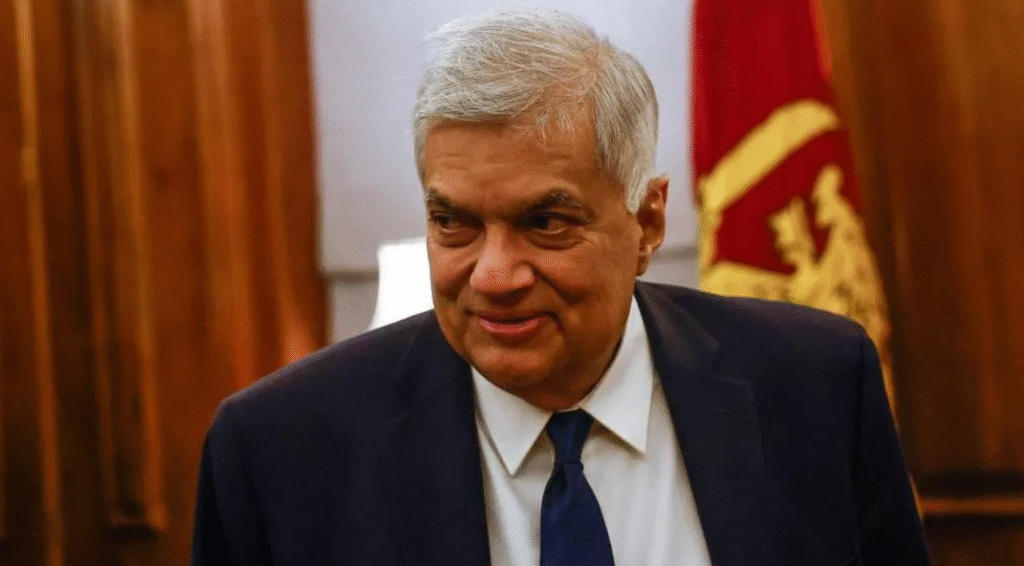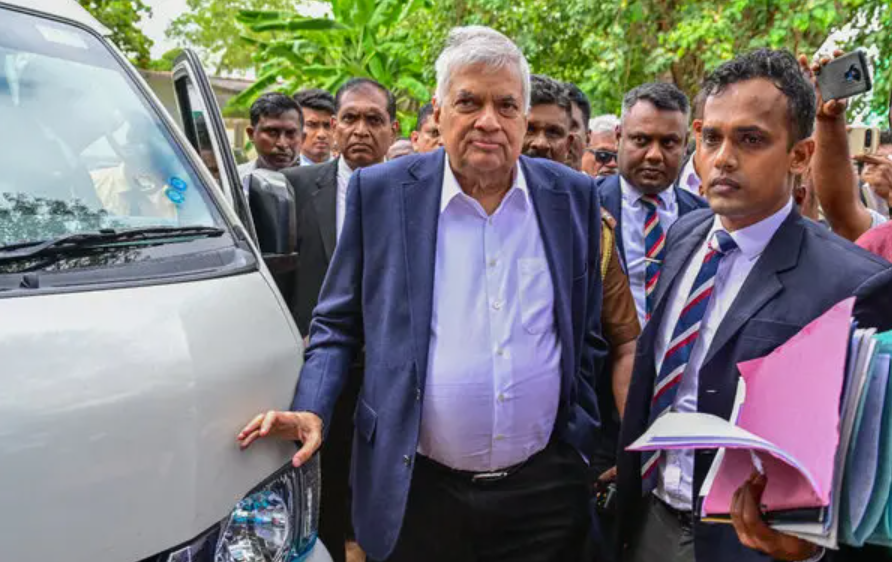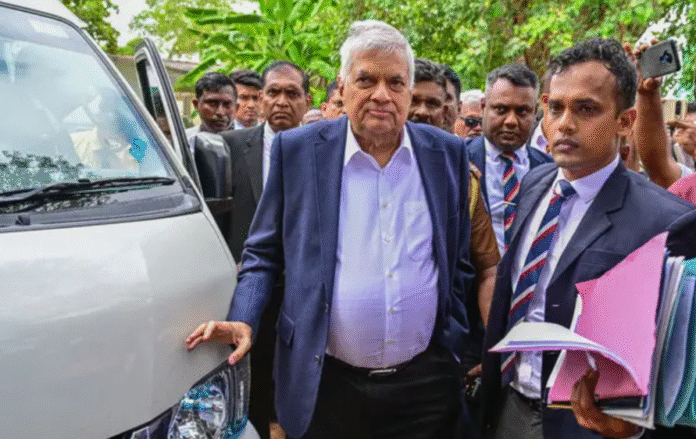Ranil Wickremesinghe Arrested-Sri Lanka’s political landscape has been thrown into turmoil after former President Ranil Wickremesinghe was arrested on charges of misusing state funds. The 76-year-old leader, who once steered the country through its deepest economic crisis, now faces serious allegations that could tarnish his long political career.
Ranil Wickremesinghe Arrested in Colombo
On Friday, Wickremesinghe appeared before the magistrates court in Colombo following his arrest earlier in the day. According to the Criminal Investigations Department (CID), the case centers on alleged misuse of government money during foreign trips he undertook while serving as president between 2022 and 2024.
This marks a historic first: Wickremesinghe is the first former president of Sri Lanka ever to be arrested. The news has shocked the island nation and stirred intense debate about accountability and political justice.

Charges Against the Former President
Authorities have leveled three separate charges against Wickremesinghe. A major focus is his 2023 stopover in the United Kingdom, which occurred on his return from the G77 summit in Cuba. During that visit, he and his wife reportedly attended a private event — a University of Wolverhampton ceremony, which prosecutors allege was funded with public money.
Sri Lanka’s CID claims that more than Rs 600 million ($2 million; £1.4 million) was spent on foreign trips during Wickremesinghe’s presidency. Investigators argue that portions of these expenses cannot be justified as official state visits.
Wickremesinghe, however, has denied all wrongdoing, insisting that every trip he made was in line with his responsibilities as head of state.
A Veteran Politician’s Rise and Fall
Before the headline-grabbing development of “Ranil Wickremesinghe arrested,” the veteran politician had been seen as one of Sri Lanka’s most experienced leaders. His political journey spans nearly five decades, beginning with his election as a Member of Parliament in 1977.
A lawyer by training and hailing from an influential family of politicians and businessmen, Wickremesinghe rose through the ranks of the United National Party (UNP). He became its leader in 1994, pushing reforms to rid the party of corruption and improve discipline.
Over the years, Wickremesinghe served six separate terms as prime minister. Despite several failed attempts to secure the presidency, his persistence paid off in 2022, when he assumed the role after Gotabaya Rajapaksa fled the country amid mass protests and an unprecedented financial crisis.
Economic Crisis and Wickremesinghe’s Presidency
Wickremesinghe inherited a near-bankrupt nation. At the time of his presidency, Sri Lanka was grappling with soaring inflation, crippling debt, fuel shortages, and widespread public anger. Many credit him with bringing relative stability back to the economy by negotiating with the International Monetary Fund (IMF) and introducing painful but necessary reforms.
His efforts earned cautious praise from global financial observers and gave Sri Lanka a fragile recovery. However, resentment remained high domestically, as ordinary citizens continued to suffer from rising costs of living.
By 2024, Wickremesinghe lost his re-election bid to left-leaning leader Anura Kumara Dissanayake, signaling the public’s desire for change.
Why Ranil Wickremesinghe Arrested Matters
The arrest of Ranil Wickremesinghe is more than a legal case, it raises questions about political accountability, corruption, and governance in Sri Lanka. Supporters argue that he is being unfairly targeted for political reasons, while critics claim his arrest proves that no leader should be above the law.

International media outlets, including BBC, and local outlets, are closely following the developments, recognizing its significance for Sri Lanka’s democratic image.
Public Reaction
Reaction among Sri Lankans is deeply divided. Some see this as long-overdue justice, holding leaders accountable for misuse of power. Others feel it could destabilize an already fragile political environment. Social media has been buzzing with the hashtag #RanilWickremesingheArrested, with opinions sharply split between anger, support, and disbelief.
Legacy in Question
Once admired for his statesmanship and credited with rescuing Sri Lanka from economic collapse, Wickremesinghe now faces a legacy overshadowed by corruption charges. Whether he will be convicted or cleared remains uncertain, but the image of “Ranil Wickremesinghe arrested” will undoubtedly shape how future generations remember him.
Conclusion
The case of Ranil Wickremesinghe arrested highlights the fragile balance between leadership and accountability. While his arrest is a blow to Sri Lanka’s political establishment, it also reflects a growing demand for transparency and integrity in governance.
As the legal proceedings unfold, the world watches closely, will Wickremesinghe be remembered as the man who helped Sri Lanka recover, or as the former president who fell from grace under the weight of scandal?

